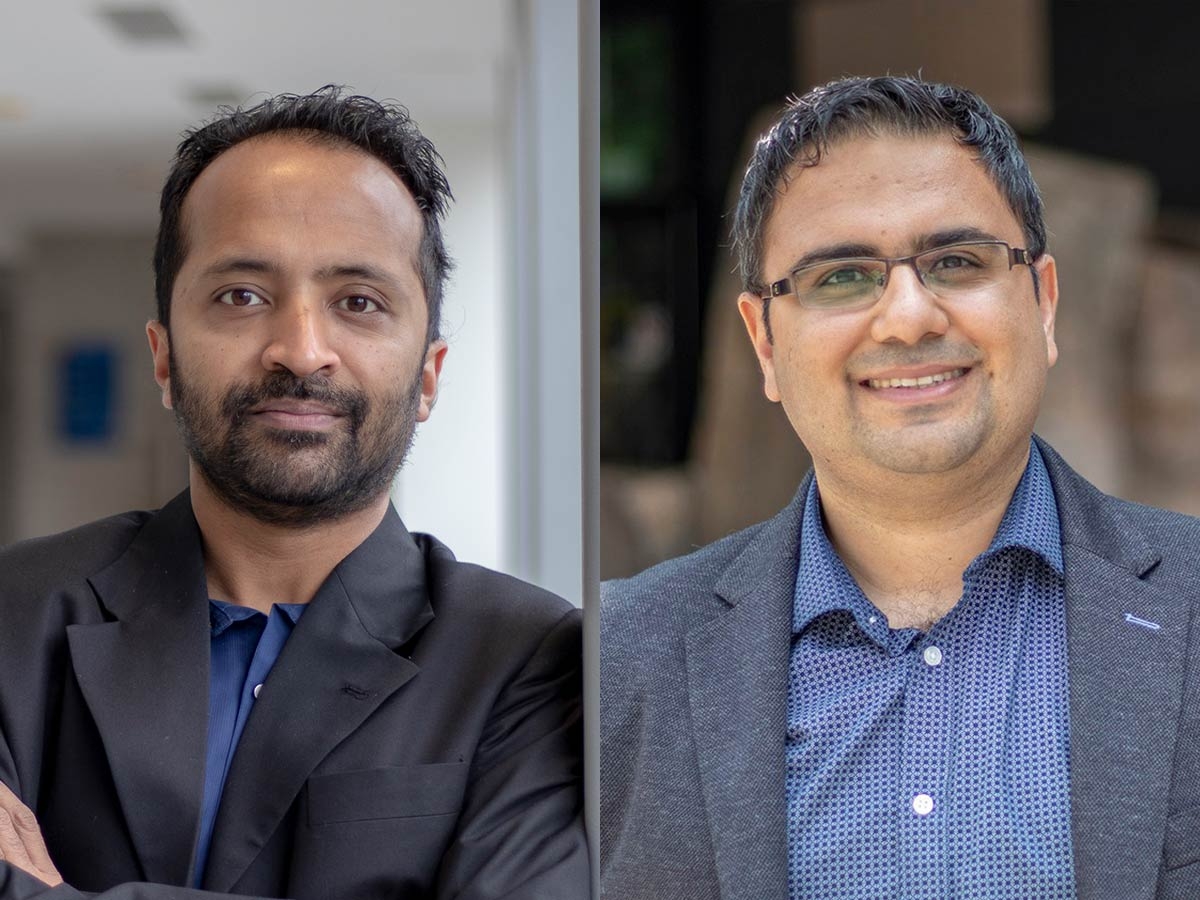New Frontiers in Research Fund propels research projects at TMU

Professors Naimul Khan (left) and Nariman Yousefi (right) have received grants through the New Frontiers in Research Fund Exploration competition.
Two AI-driven, interdisciplinary research projects led by Toronto Metropolitan University (TMU) researchers have received funding through the New Frontiers in Research Fund (NFRF) Exploration grants.
The Creative School and Faculty of Engineering and Architectural Science (FEAS) professor Naimul Khan and FEAS professor Nariman Yousefi will each receive support for their high-risk, high-reward projects. One project focuses on de-escalation scenario training for police officers and the other on the detection and classification of microplastics in water. The combined value of the NFRF Exploration Grants awarded to TMU represent a total of $500,000 in funding.
“I’m thrilled to congratulate professors Khan and Yousefi and their teams for securing this important funding,” said Steven N. Liss, TMU’s vice-president, research and innovation. “Through these novel, leading-edge projects, our TMU researchers will demonstrate the real-world applications of AI while tackling critical issues such as police training and microplastic pollution.”
Combining AI with virtual reality police training
Professor Khan’s project will build on his team’s previous work creating live and virtual reality de-escalation scenario training for mental health crisis response for police officers by developing an automated training system powered by AI and machine learning. The new algorithms will assess physiological sensor data, such as eye movement or heart rate, to adapt and fine-tune scenarios to individualize the experience and meet specific training objectives. Virtual reality scenarios allow for scalable training opportunities, creating an accessible, standardized experience that can be used even in remote areas.
Detecting microplastics with ultrasound and AI
Professor Yousefi’s research will take a novel approach to detecting and classifying microplastic pollutants in water bodies by experimenting with ultrasound machines, AI and underwater robotics systems. Well-established for imaging in medical and industrial scenarios, portable ultrasound imaging offers the potential to streamline sample analysis by conducting it in situ, making it more cost-effective than current analysis methods. AI algorithms will be used to analyze the ultrasound images, detecting and classifying the microplastics present in a sample. Rapid, on-site testing could inform real-time environmental monitoring, influence awareness of microplastic pollution and impact policy.
Learn more about the New Frontiers in Research Fund results. (external link)
Related links
Improving police response to mental health crises through immersive simulation training